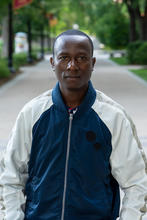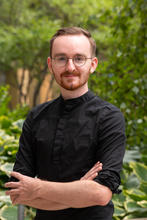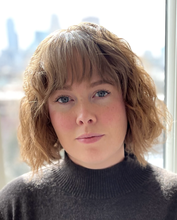Check out the published work by some of our students.
Danford Zirugo
“Journalism Hybridization in Postcolonial Societies: Paradigm Adaptation Tensions in Post-Apartheid South Africa”
Journalism Studies, 2021
What inspired you to pick your topic of research? I have always been interested in understanding the meaning of journalism practice in the Global South. As such, whenever I get the opportunity, I pick cases where journalists debate the meaning of appropriate journalistic practice. In this case, where a leading South African newspaper was involved in a journalistic scandal over inaccurate reports, provided a unique opportunity to understand how journalists define appropriate and inappropriate practices. Particularly important was the debate over the use of sources.
What contribution did your research make to the field? This paper contributes to De-Westernization of journalism studies by looking at how the journalistic paradigm operates in the Global South. In particular, the paper looks at how journalists in the Global South attempt to adapt the Western journalistic norms to their local post-colonial context. They consider the needs of their post-independence countries and how best they can practice journalism in a way that fulfills the public interest. This need forces journalists in the Global South to redefine or modify some of the journalistic norms.
What support did you receive from the School to be able to do this research? This work would not have been successful without the research support from my department. The Hubbard School has provided immense support towards my research in the form of funding. For instance, the Travel and Professional Development Scholarship and the 2020 Summer Research Fellowships were crucial in enabling me to carry out this research without any financial worries. This is of course not to mention the research support and mentoring from professors, with special mention to my advisor Matt Carlson.
Katie Kim
“Employees’ Communicative Behaviors in Response to Emotional Exhaustion: The Moderating Role of Transparent Communication”
International Journal of Strategic Communication, 2021
What inspired you to research this topic? Emotional and mental health problems for employees have increasingly become important concerns for organizations. When working as a public relations manager at the company, I witnessed that the consequences of employees’ emotional exhaustion could vary greatly depending on an organization’s internal efforts to manage this problem. Surprisingly, only a small number of scholarly research have paid attention to organizational efforts to alleviate the potential adverse effect of emotional fatigue of employees. In this sense, I wanted to highlight through my research how critical the internal communication efforts of the organization are to solve the problem of employees’ mental health and burnout.
What contribution did your research make to the field? Using a conservation of resources (COR) theory as a core theoretical lens, this research explored the psychological mechanisms experienced by emotionally burned out employees. With an emphasis on organizations’ transparent communication practices as critical resources, I believe this research broadens our understanding of the value of internal communication from public relations and strategic communication perspectives. This research also provides practical guidance to strategic communication professionals and organizational leaders on how they can help employees maintain a favorable relationship with their company and be more motivated to invest their efforts in positive organization-related behavior when they are emotionally exhausted.
What support did you receive from the School to be able to do this research? The Hubbard School has provided an ideal academic environment to equip me with adequate theories, develop insights into current communication issues, and conduct fruitful research. In particular, with regard to this research, through close interaction with faculty and colleagues, I was able to gain insights into how to solve practical communication or workplace issues gained from my professional experience through academic lenses. Beyond completing a particular study, the School always guides me well in drawing the direction of my overall research interests from a broader and more diverse perspective.
Hao Xu
“Should businesses take a stand? Effects of perceived psychological distance on consumers’ expectation and evaluation of corporate social advocacy”
Journal of Marketing Communications, 2021
What inspired you to pick your topic of research? I’ve long been interested in topics related to corporate social responsibility communication. In recent years, public expectations for corporations to engage in social-political issues increases continuously, which calls for more in-depth and systematic understandings of this practice and consumer reactions. Also, the psychological mechanisms we studied - psychological distance to a company and consumer-company identification - exist pervasively in consumers’ interactions with companies. Thus, I deemed this an important mechanism to study for a better understanding of consumers’ reactions to corporate social advocacy.
What contribution did your research make to the field? On the theoretical level, this study extended the construal effects to a new context - corporate social advocacy. It contributes to existing literature by suggesting that consumers’ reactions to corporate social advocacy depend not only on their agreement with corporate stances, but also their perceived psychological distance to companies. Practically, this study also suggests that understanding the effects of perceived psychological distance on corporate social advocacy outcomes becomes important for public relations professionals when they plan to engage in controversial issues. This study opens up an avenue for future research to examine the psychological mechanisms underlying consumers’ reactions to corporate social advocacy.
What support did you receive from the School to be able to do this research? From the initiation of research ideas to experiment design and paper writing, this research project has received great intellectual support from professors and graduate students. Dr. Hyejoon Rim and Dr. Marco Yzer provided my coauthor Eugene (then M.A. student) and me a lot of ideas when we conducted this study. We also discussed this project with members of the Research in Strategic Communication (RiSC) lab and received many helpful suggestions. These ideas and suggestions all helped us improve our study.
Trevor Zaucha
“Newly minted: Non-fungible tokens and the commodification of fandom”
New Media & Society, 2022
What inspired you to pick your topic of research? The work is a reflection and intersection of a handful of topics that have fascinated me for some time. During my time at the University of Illinois I found myself interested in game monetization and the presence of gambling and gambling-like mechanics present in interactive media. At the time, I didn’t have the sort of access or experience to pursue these interests in the way I wanted. With regards to NFTs, I truly feel that I was in the right place at the right time, as the concept for this project came together quickly, deviating sharply from a topic I initially thought to pursue. I care very deeply about the many topics discussed in the piece, believing that they impact media, culture, and finance in meaningful ways.
What contribution did your research make to the field? At this point in time, I find it difficult to discern what exactly this work’s contributions are to the field of mass communication, believing that these contributions will be more apparent as more time has passed. I find that others share the point of view of the work regardless of whether or not they have read it and feel that, if nothing else, the work serves as a meaningful contribution to the political economy of new media, prioritizing a critical-cultural perspective in the process.
What support did you receive from the School to be able to do this research? The support I received was hugely beneficial to the production of this work and is a significant reason why I feel it is a polished, thoughtful piece of scholarship. This publication began as a course paper for JOUR 8651: Mass Communication, Audiences & Society. Professor Matt Carlson encouraged me to pursue the topic despite my reservations as to its relevance to the course and more broadly to topics most commonly explored by Hubbard School faculty and graduate students. Following submission of the first draft of this paper, I received feedback that helped me to prepare the work for publication. In the summer that followed, I received the Summer Research Fellowship, which allowed me to focus on improving the work. My advisor and co-author, Professor Colin Agur, helped me to further refine the work in ways big and small, and navigate the odds and ends of the journal submission process. Additionally, Professor Agur has prioritized getting the work in front of both general and academic audiences, which is hugely important to me and my research. Newly Minted is my first publication and one that I’m very proud of, and although this brief passage may fail to fully capture how important the support I received was to the final outcome, I can confidently say that it would not be what it is if not for the professional and financial support I received.
Sarah Wiley
“The Grey Area: How Regulations Impact Autonomy in Computational Journalism”
Digital Journalism, 2021
What inspired you to pick your topic of research? The use of data and technology in journalism is growing at an exponential rate. I wanted to find out what legal obstacles reporters who work in this area were coming across and how laws and regulations may help or hurt their autonomy and press freedom when it comes to using these technologies for a journalistic purpose.
What contribution did your research make to the field? The project found that data journalists come across numerous legal and ethical issues especially when using data and new technologies - such as issues with freedom of information laws, privacy concerns, website terms, and controversial anti-hacking laws. It highlighted how the press's freedom to use certain technologies and gain access to data is constrained and diminished.
What support did you receive from the School to be able to do this research? I wouldn't have been able to do this research without the many different types of support I've received from the School through the years. The School has provided me with the financial security needed to explore this work through Hubbard Graduate Fellowships and travel and research grants. I've also benefited from the tremendous intellectual freedom and curiosity that the School fosters through faculty connections and mentorships.




